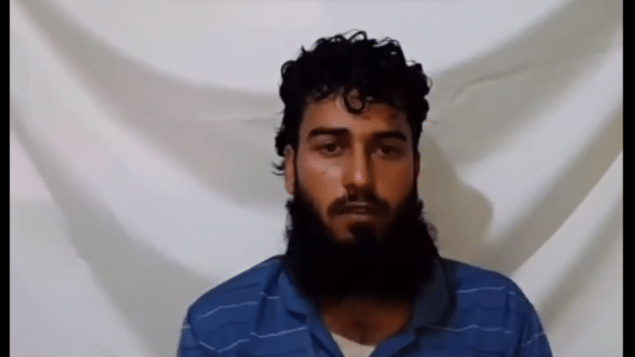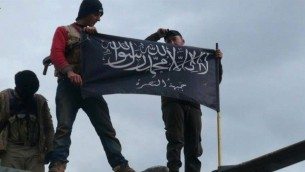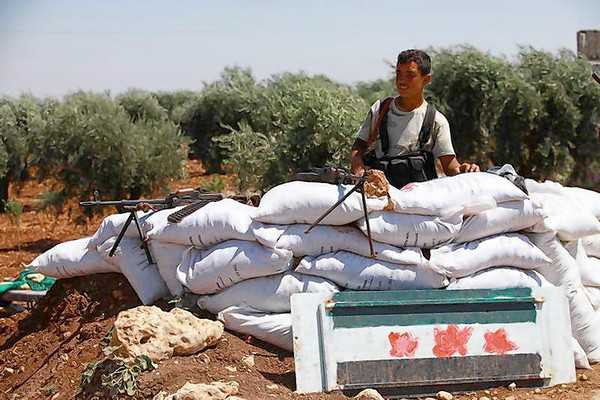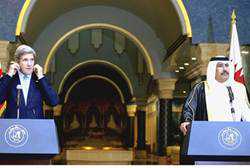|
By: Mohammad Noureddine Translated from As-Safir (Lebanon)
|
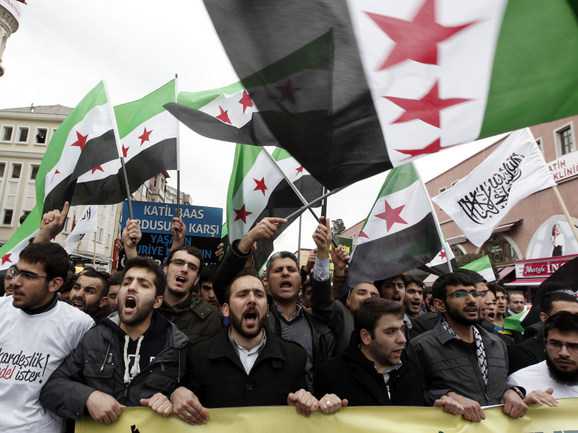
Demonstrators shout slogans during a protest against the government of Syria’s President Bashar al-Assad, in Istanbul, March 15, 2013. (photo by REUTERS/Osman Orsal )
The Syrian crisis, since its outbreak two years ago, has formed a testbed for Turkey’s foreign policy, in light of all the headlines and theories concerning the relationship between the two countries brought forth during the few years that preceded the crisis.
About This Article
Summary :
Since the beginning of the Syrian crisis, Turkey has sought to topple a regime standing in the way of its own regional hegemony, writes Mohammad Noureddine.
Publisher: As-Safir (Lebanon)
Original Title:
Turkey ‘Losing’ Even if the Syrian Regime Fell
Author: Mohammad Noureddine
First Published: March 15, 2013
Posted on: March 15 2013
Translated by: Kamal Fayad
|
While initial indications pointed to a change in Ankara’s relationship with Damascus early on in the crisis, the last two years have clearly demonstrated the nature of this transformation. They have revealed the new direction chosen by the Turks, as well as their biases and goals.
One can postulate the following, without any systematic order to the information given:
1. Turkish Foreign Minister Ahmet Davutoglu reiterated that his country adopted its stance against the Syrian regime only after dozens of visits and many consultations, the last of which occurred in August of 2011. However, Ankara was, in parallel and less than a month after the crisis erupted, working to provide the Syrian political opposition with support, which was transformed later on into military support, as reflected in the formation of the Free Syrian Army (FSA).
2. Regardless of any distances and deadlines, Turkey chose to become a spearhead in the attempt to overthrow the Syrian regime, and served as headquarters for the FSA’s command. The first opposition council, the Syrian National Council (SNC), was also formed in Istanbul. Turkish territory was transformed into a corridor for all types of extremist militants, and a military supply and logistics base to those headed for Syria, according to all documented western reports and press articles.
3. Turkey also became the mastermind behind regional and international efforts to overthrow the Syrian regime; an example of which is Ankara’s brainchild, the Friends of Syria Conference. Furthermore, Turkey fully coordinated with the Arab League in order to isolate Syria and suspend its membership in the group. Turkish diplomacy also expanded great effort in international forums to obtain a Security Council resolution imposing a buffer zone, allowing foreign military intervention, and pressuring Russia and China to change their stance.
4. Turkey put its full weight behind efforts to remove the Syrian regime from both Syrian and regional maps. It raised the slogan of “all or nothing,” and wagered on the Syrian regime quickly falling, as was the case in Egypt, Tunisia and later on Libya. Ankara thus became the timekeeper, setting deadlines for the toppling of the regime, in a psychological attempt to bolster the chances of it actually falling. This one way bet, which did not take into account the possibility of failure, led Turkish diplomacy into an impasse, which drove it to espouse even more extremist views instead of reassessing its calculations.
5. It has become clear that one of the biggest mistakes in Ankara’s policy failure toward Syria was due to a lack of foresight by Turkish foreign policy theorists, and their inability to correctly read the state of Syrian internal affairs and the country’s balance of power. Ankara also failed to properly take into consideration Syria’s regional position and role, as well as Russia and China’s foreign policy leanings, the battle to shape the balance of the new world order, and Syria’s importance in that battle. The strength of the regime’s position both internally and abroad thus slipped Turkish leaders’ minds.
6. As a result, risks materialized that Turkey did not expect; first among them being the rise of sectarian tensions between Sunnis and Alawites inside Turkey, the increase in military confrontations with the Kurdistan Workers’ Party (PKK), in addition to the emergence of a new Kurdish dynamic in the north of Syria, which formed the basis for Turkish threats to militarily enter Syrian territory in order to neutralize the Kurdish menace.
7. One of the most earth-shattering results was the rapid disintegration of Davutoglu’s “Zero Problems” policy, which was adopted by Turkish Prime Minister Recep Tayyip Erdogan and barely lasted a few years. Turkey’s stance vis-à-vis Syria led to a deterioration of its relations with all neighboring countries, starting with Syria, Iraq, Iran, some Lebanese factions, and all the way to Russia.
8. The Syrian crisis revealed the presence of double standards within Turkey. Ankara subsequently explained its Zero Problems slogan as having to do with peoples and not regimes; yet this slogan was never raised in support of the Bahraini people’s revolt.
9. It has become evident that Turkey’s foreign policy aimed, through its desire to topple the Syrian regime, to kill several birds with one stone. The first aim was to transform Turkey into the preeminent player on the regional scene. Ankara believed that overthrowing the Syrian regime would pave the way toward weakening the Iraqi regime in preparation for it also being toppled, which would be followed by a strike against Hezbollah in Lebanon, after which the Iranian Islamic revolution would be more easily contained and the Iranian regional role greatly reduced. Davutoglu’s speech in front of the Turkish Parliament on Apr. 27, 2012, was very important to understanding Ankara’s desire to monopolize power in the region at the expense of all Arab partners.
The second aim behind toppling the Syrian regime was to pave the way toward the reestablishment of the Ottoman-Seljuk empire that Erdogan never stops talking about, and cannot deny because his speeches were documented in sight and sound on a large number of occasions.
10. Ankara committed an unforgivable sin when it painted itself as part of the Sunni axis in the region, thus negating all the slogans characterizing the Turkish political model as being secular and democratic. The ideological, ethnic and sectarian motives behind the Turkish role also came to light in its differentiation between factions of the Syrian opposition. It embraced the Islamic movements affiliated with the Muslim Brotherhood, while shunning secular and Kurdish factions inside and outside Syria.
11. The Syrian crisis also drove Turkey closer to NATO, giving the latter an opportunity to deploy its missile defense system and then the Patriot system on Turkish soil. Turkish officials began considering their country’s border to be an extension of the borders of other NATO countries. Turkey unprecedentedly began favoring its affiliation with NATO over any other consideration, including the fact that it is an Eastern, Muslim country. This, in itself, was an important and dangerous transformation that no other Turkish regime in history ever attained.
12. Turkey sacrificed all previous relationships with its neighbors and destroyed the trust upon which these neighboring countries relied to accept past Turkish policies of openness towards the Syrian crisis. Turkey thus took on the guise of a country that interfered in the internal affairs of others, by demanding the resignation of former Egyptian President Hosni Mubarak, and effectively participating in efforts to overthrow the Syrian regime.
The Zero Problems policy was therefore transformed into the policy of overthrowing any regime with which Turkey did not agree. This too was a dangerous development in the Turkish role, which, in the past, drove it to be contented with allying itself with the West and Israel, only to now become a party to the internal conflicts of all nations.
13. The Syrian regime’s survival will be deemed an abject failure of the policies espoused by the ruling Turkish Justice and Development Party. This is the reason for the latter’s unprecedented intensity in trying to prevent any compromise being reached with the regime and inciting against dialogue and for the continuation and intensification of military confrontations.
Despite that, the regime’s overthrow, if it did occur, would not be viewed as a victory for Turkey. For the matter goes beyond the survival of this or that regime to encompass the relationship and future of Turkey vis-à-vis the social, religious, sectarian, and ethnic components of society in the region. This relationship cannot be restored when one takes into account the events that transpired and the continued rule of the Justice and Development Party. The loss of confidence and the return of suspicion between Turkey and its immediate environs (as a result of the Syrian crisis), and between it and the outlying Arab world (Saudi, Emirati and other nations’ resentment for Turkey’s support to the Muslim Brotherhood regimes in Egypt and Tunisia) will form the biggest obstacle to Turkey recovering its natural place in the Orient.
Read more: http://www.al-monitor.com/pulse/politics/2013/03/turkey-loss-syria.html#ixzz2NgJNxyRs
